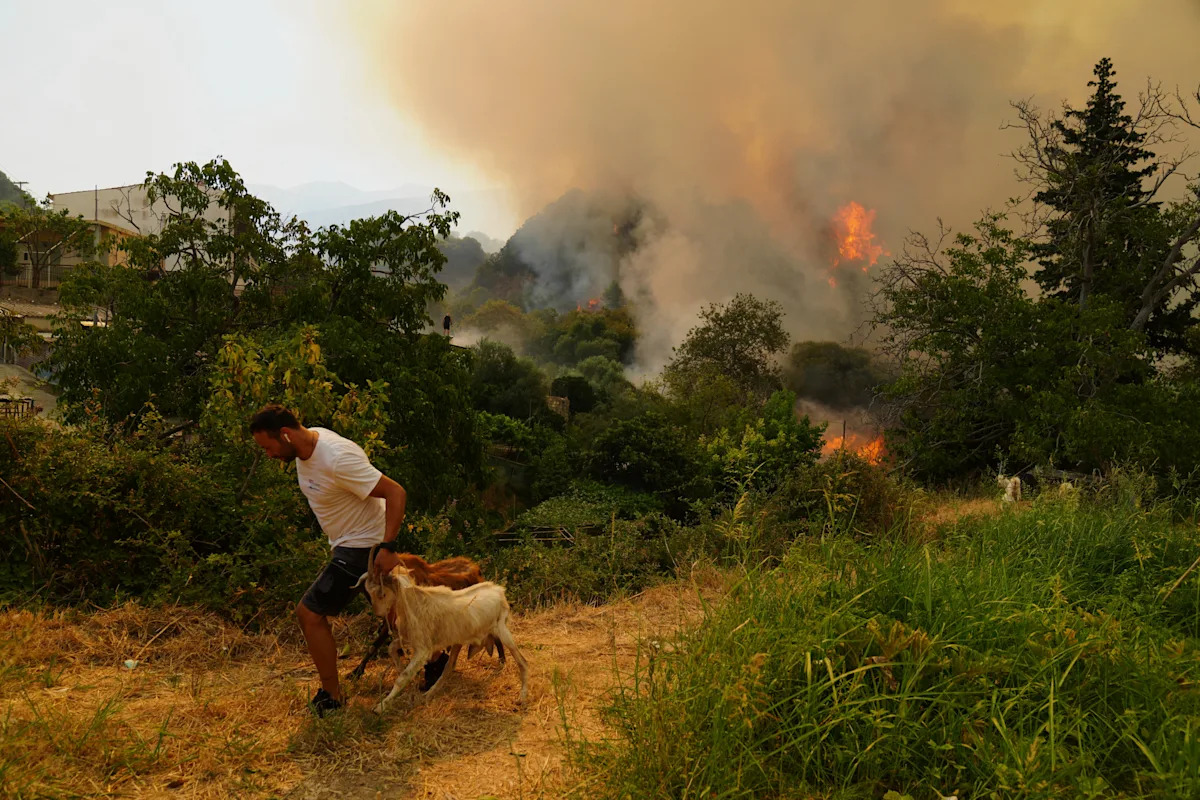A new study has confirmed that climate change significantly intensified wildfires this summer in Turkey, Greece, and Cyprus. Released on Thursday by the World Weather Attribution (WWA), the research highlights how rising temperatures and decreasing rainfall contributed to the severity of these fires, which resulted in the deaths of 20 people and forced the evacuation of approximately 80,000 residents. Over 1 million hectares (2.47 million acres) were scorched during this crisis, marking 2025 as one of Europe’s most devastating years for wildfires.
Wildfires erupted in the eastern Mediterranean during June and July, fueled by temperatures exceeding 40 degrees Celsius (about 104 degrees Fahrenheit), coupled with extremely dry conditions and strong winds. The study indicated that these fires were 22% more intense than they would have been without the influence of climate change. Theodore Keeping, a researcher at the Centre for Environmental Policy at Imperial College London, described the findings as “concerning,” noting that climate change is pushing conditions toward hotter and drier climates.
Keeping emphasized the urgency of addressing this issue, stating, “Today, with 1.3 degrees C of warming, we are seeing new extremes in wildfire behaviour that have pushed firefighters to their limit. But we are heading for up to 3 degrees C this century unless countries more rapidly transition away from fossil fuels.”
The study also revealed a significant decline in winter rainfall in the region, which has dropped by approximately 14% since the pre-industrial era. This reduction in precipitation contributes to the increased likelihood of prolonged dry spells, which are now 13 times more likely due to climate change. Additionally, the analysis reported a rise in the intensity of high-pressure systems that strengthen the northerly winds, known as Etesian winds, enhancing wildfire spread.
Gavriil Xanthopoulos, research director at the Institute of Mediterranean Forest Ecosystems of the Hellenic Agricultural Organization, expressed concerns about changing wind patterns. Traditionally, firefighters could wait for such winds to diminish before attempting to control the blazes. “It seems that they cannot count on this pattern anymore,” Xanthopoulos stated, calling for further studies to better understand the increasing velocities of these winds.
Flavio Lehner, an assistant professor in Earth and atmospheric sciences at Cornell University, noted that the WWA’s findings are consistent with existing literature on climate change and its impact on wildfire conditions. He remarked that climate change is “loading the dice for more bad wildfire seasons” in the Mediterranean, underscoring the need for urgent action to mitigate these effects.
As wildfires continue to pose a significant threat to lives and ecosystems, the implications of this study serve as a stark reminder of the urgent challenges posed by climate change in the region. The research highlights the necessity for immediate action to address the underlying causes of climate change and to safeguard communities vulnerable to such devastating natural disasters.
